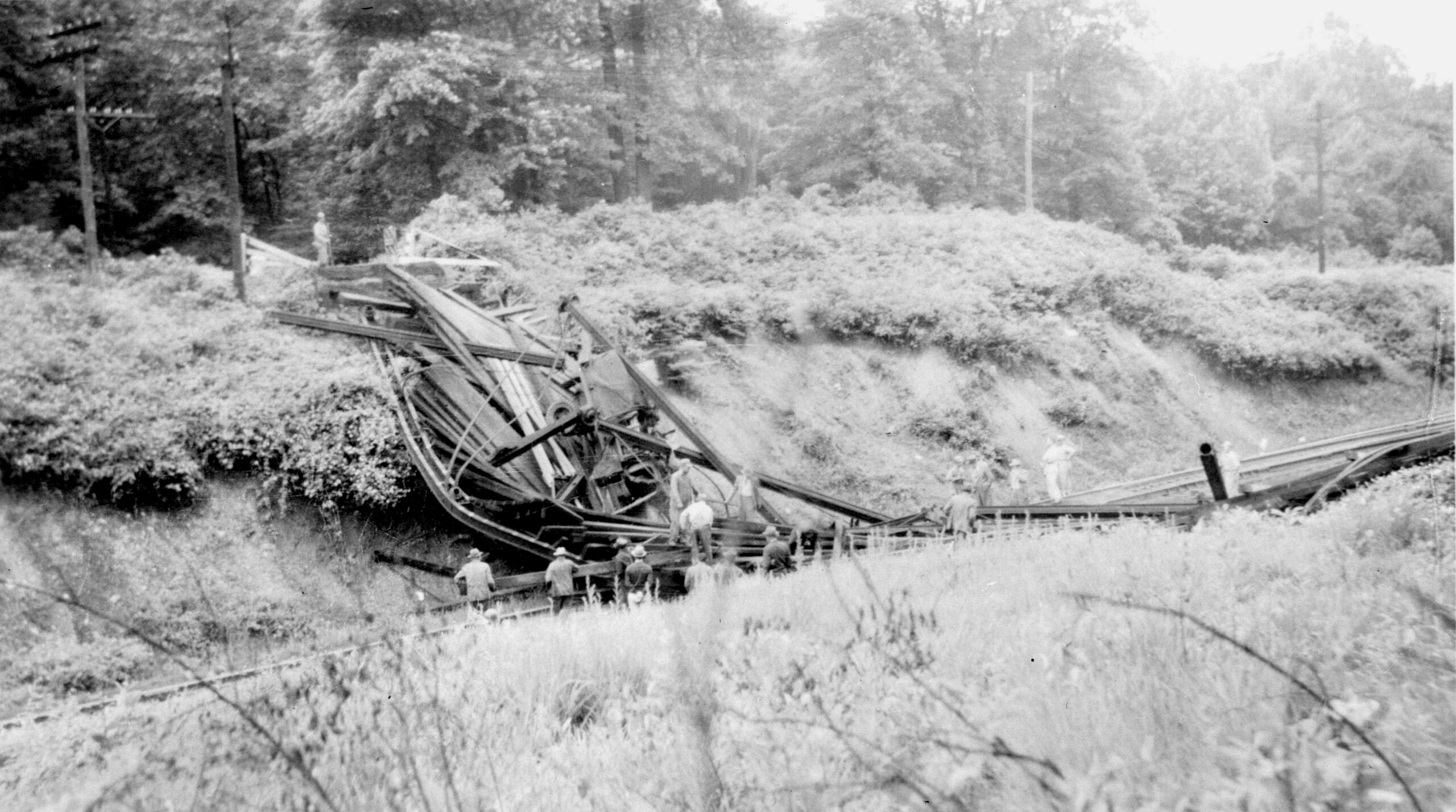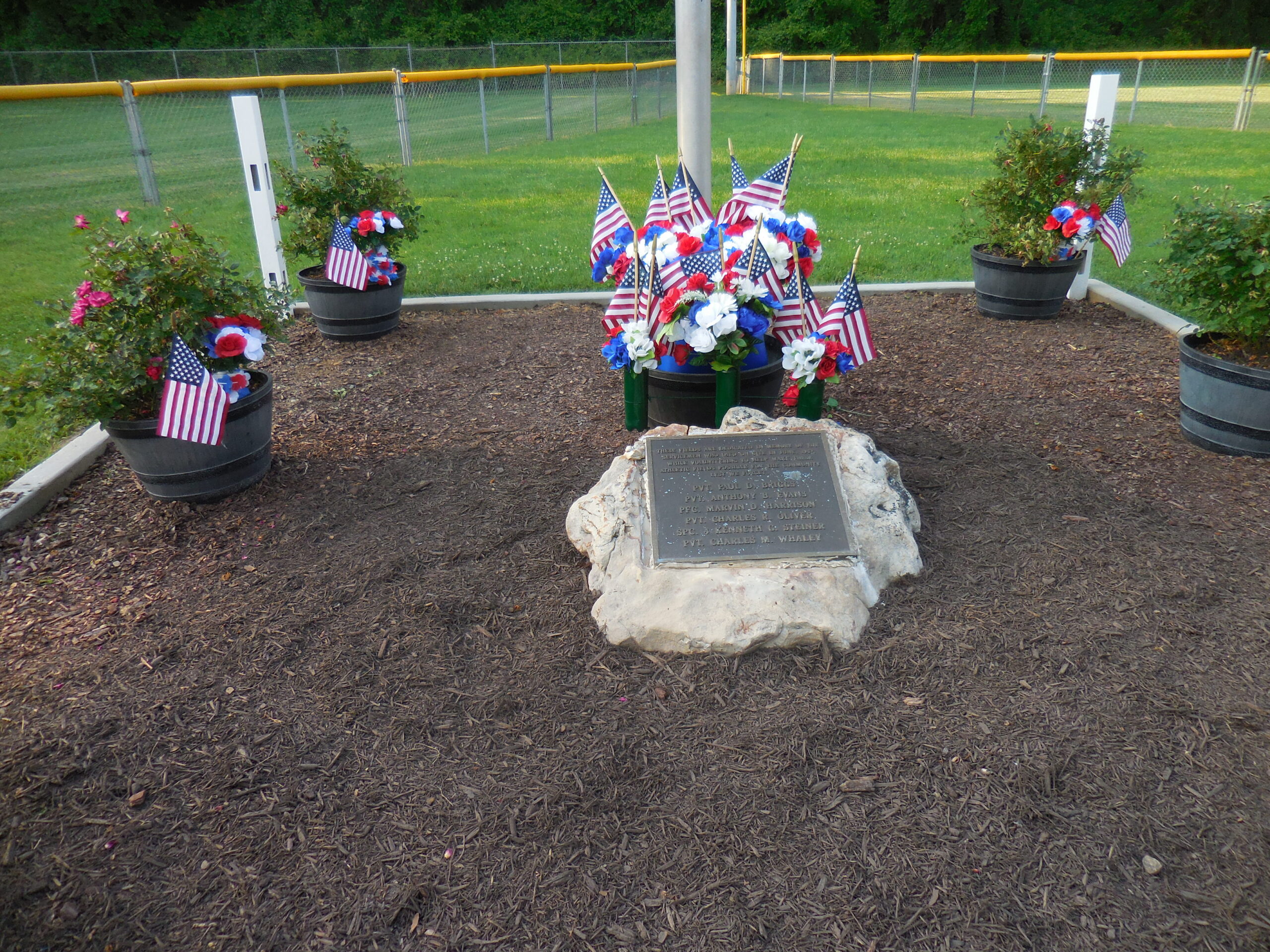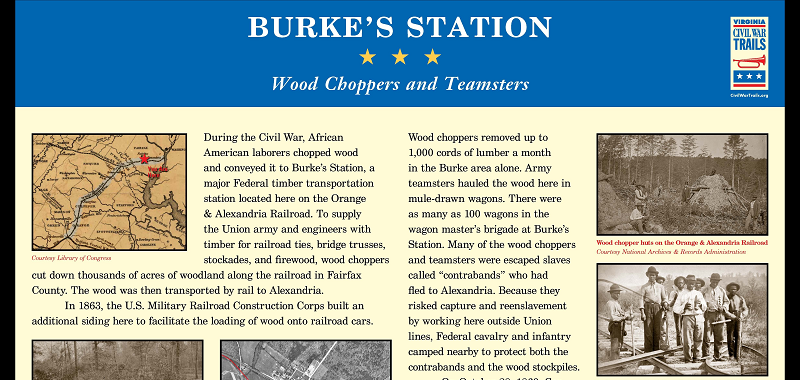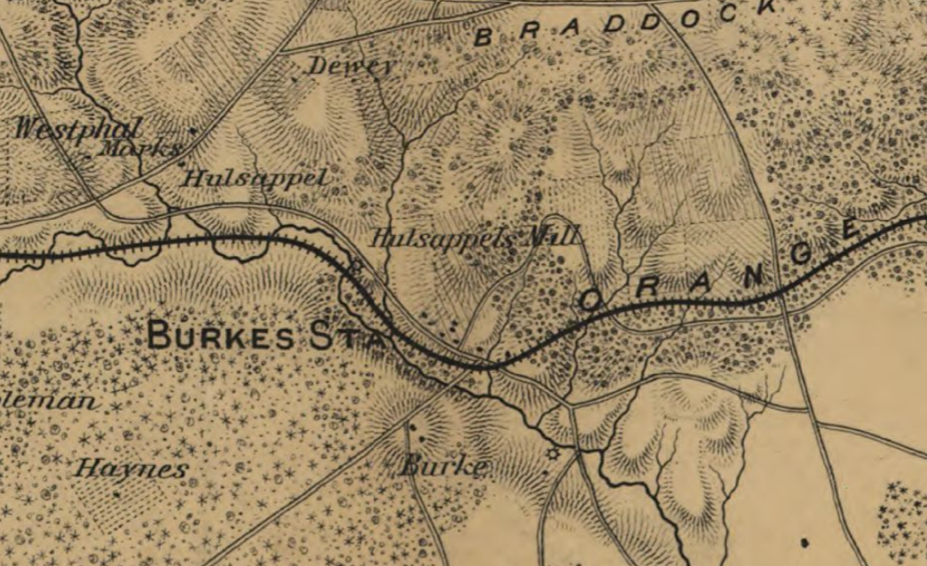By Mary Lipsey, with contributions from Brian Slawski. Credit goes as well to Glenn Curtis,…

Fort Belvoir Convoy Bridge Accident
By Mary Lipsey and Debi DeLoose.
In the late 1800’s an iron truss bridge was built to carry traffic on Ox Road (123) across the Southern Railway tracks and right-of-way near Fairfax Station. Early in the morning of June 4, 1944, the bridge, maintained by the railroad, collapsed as an Army convoy of trucks carrying troops from Fort Belvoir crossed over. The convoy was heading to wilderness training exercises in the national forest at Skyline Drive. The collapse resulted in the death of a Fort Belvoir soldier, Pvt. Robert V. Hamilton of Stanley, Kentucky, and injury to 13 others.
The Fairfax Herald reported:
“The bridge which carries Ox Road over the Southern Railroad at Fairfax Station collapsed on Sunday morning, last. The bridge fell while an Army truck was crossing the span, and a soldier, Pvt. Robert V Hamilton of Stanley, Kentucky, lost his life by being caught in the iron superstructure.”
[Fairfax Herald June 9, 1944 Page 1]
Lee Hubbard of Fairfax Station remembers that morning:
I remember that. It was Sunday morning, June 4, 1944. The noise woke [his parents]. We went down to see. The bridge had completely collapsed onto the railroad [tracks]. A truck was hung up in the girders. Their convoy was going from Fort Belvoir out to the Shenandoah area for some training. And the story, I always was told, was that one of the trucks making the turn onto the bridge struck the corner of the railing and had to back up to cross over. They knew the bridge was not real sturdy, so they were letting them go, one truck at a time. It wound up collapsing and killing one [person].
Mr. Hubbard explains that one neighbor, who was a nurse, tended to the injured until an ambulance arrived. He continues:
“They brought out a work train with a crane on it and liftedthe debris. And it wasn’t too long before they had the trains running again.”
The widow of Robert Hamilton, a victim of the collapse, sued the Southern Railway. Mr. Hubbard says his brother, Travis, was called to testify in court.
“I remember when he had to go to court . . . They were questioning him about a hive of honeybees that had built up into the upper girder [of the bridge]. I think that someone was trying to claim that it [the beehive] had helped weaken it.”
Lee Hubbard quotes from a personal interview, May 16, 2005.
Three years later, The Washington Post reported:
“An Alexandria District Court jury yesterday denied the widow of a Fort Belvoir soldier the $15,000 damages she sought from Southern Railway for the death of her husband in a bridge collapse.”
[The Washington Post, November 13, 1947 Page B2]


